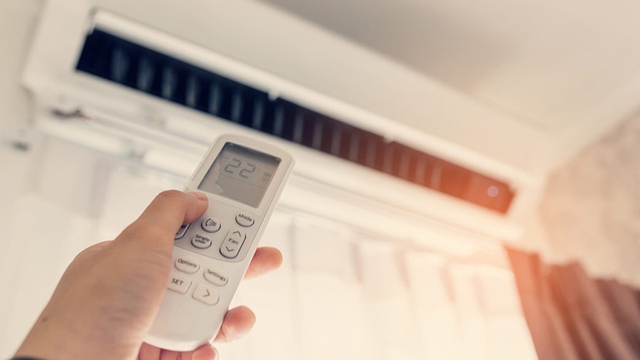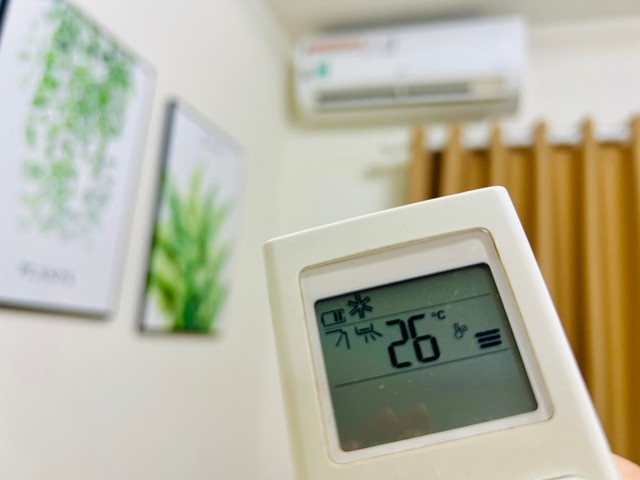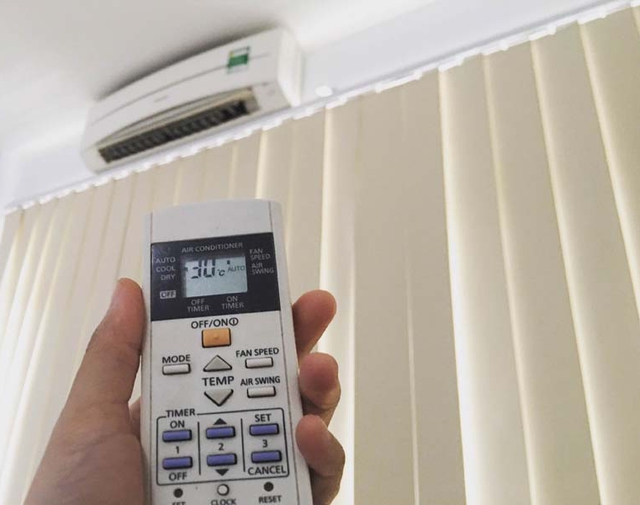Is Setting the Air Conditioner to 26 Degrees Celsius Energy Efficient?
According to energy experts in the US, the ideal temperature range for air conditioning is between 24 and 27 degrees Celsius. However, this range is recommended for daytime use only. At night, the temperature should be adjusted to be slightly cooler, as your body temperature drops during sleep and you are generally less active, producing less body heat.
A comfortable and energy-efficient temperature for nighttime is around 28 degrees Celsius. Setting your air conditioner to 26 degrees Celsius at night can be a waste of energy and may even make you feel too cold.

The ideal daytime temperature for air conditioning is between 24 and 27 degrees Celsius, while a comfortable nighttime temperature is around 28 degrees Celsius.
Before bedtime, simply adjust the temperature to 28 degrees Celsius to save on energy costs and maintain a comfortable sleeping environment. Sleeping in a too-cold environment can lead to muscle cramps and a stuffy nose, and it’s also wasteful in terms of energy consumption.
Tips for Energy-Efficient Air Conditioner Use in the Summer
During the summer months, electricity bills tend to soar due to increased air conditioner usage. To use your air conditioner safely, efficiently, and economically, keep the following tips in mind:
Keep doors and windows closed to prevent cool air from escaping
Always check that windows and doors are closed when the air conditioner is running. If you need to step out, make sure to turn off the air conditioner and close the door to prevent energy waste.
Use curtains or blinds on windows
If you have glass windows or doors, consider installing curtains or blinds. By drawing them closed, you can block out direct sunlight and reduce the amount of heat entering the room, which helps your air conditioner run more efficiently and saves energy.

While many people believe that setting the air conditioner to 26 degrees Celsius is ideal, experts advise against this, especially during sleep.
Regularly clean the air filter
Air conditioner filters can get clogged with dust and debris, reducing the cooling efficiency of the unit. Regularly cleaning or replacing the air filter ensures optimal performance and energy efficiency.
Avoid frequently turning the air conditioner on and off
Frequently turning the air conditioner on and off is not energy-efficient. Instead of turning it off completely and then turning it back on when you feel warm, try adjusting the temperature or using a fan to circulate the cool air. This will help reduce energy consumption and prolong the lifespan of your air conditioner.
Turn off the power switch
Most people believe that turning off the air conditioner with the remote control is sufficient. However, the air conditioner still consumes a small amount of electricity even when turned off with the remote. To save energy, remember to turn off the power switch on the unit or at the circuit breaker.
Adjust the air vents for optimal cooling
The air vents, or louvers, inside your air conditioner can be adjusted to direct the cool air where you need it most. On hot days, you can angle the vents to focus the cool air directly on you, providing a more comfortable environment without lowering the temperature.

Adjusting the air vents can help cool down a room faster on hot days by directing the airflow to specific areas.
How to Prevent Dry Air in Air-Conditioned Rooms
In addition to temperature control, another common issue with air conditioning is dry air. Many people wake up with a sore throat, dry skin, or even nosebleeds after sleeping in an air-conditioned room. This is because the air conditioner removes moisture from the air, and the closed environment prevents proper ventilation.
A simple solution is to place a bowl of water in the room. The water will evaporate, adding moisture to the air and helping to alleviate dry skin, sore throat, and respiratory issues. This natural humidification method is both cost-effective and easy to implement.



































